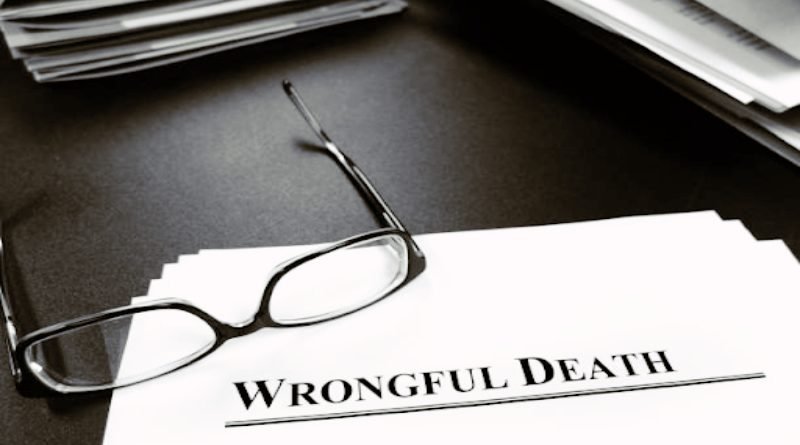A Guide to Wrongful Death Lawsuits: Ensuring Justice and Financial Security in the Wake of Tragedy
Losing a loved one due to the negligence or wrongful actions of another is a devastating and life-altering experience. In such tragic situations, pursuing a wrongful death lawsuit can be a means to seek justice and secure financial stability for the surviving family members. The following are some key aspects of wrongful death lawsuits. From understanding the legal grounds to the steps involved in pursuing a claim, those can cope with the aftermath of tragedy.
Criteria To File A Lawsuit For Wrongful Death
If you wish to move forward with a wrongful death lawsuit, it’s best to understand the legal grounds. Below are the eligibility criteria for filing a claim:
Negligence or Wrongful Act
Wrongful death lawsuits typically arise from another party’s negligence or wrongful act. This negligence can occur in various contexts. These include car accidents, medical malpractice, workplace accidents, and product liability.
Legal Standing
Not everyone has the legal standing to file a wrongful death lawsuit. Typically, immediate family members, such as spouses, children, or parents of the deceased, have the standing to pursue such claims. The specific rules vary by jurisdiction.
Statute of Limitations
There is a limited time frame, known as the statute of limitations, within which a wrongful death lawsuit must be filed. This time frame varies and can range from one to three years after the date of death. In North Carolina, this timeframe is two years from the date of death. It’s required to be aware of and adhere to this timeline.
The Process of Pursuing a Wrongful Death Lawsuit
Pursuing a wrongful death lawsuit involves several steps to establish liability and seek compensation:
Consultation with an Attorney
Seeking the expertise of an experienced wrongful death attorney is the initial and most crucial step. They can assess the circumstances of the case, advise on legal standing, and determine the strength of the claim. Raleigh personal injury lawyers will fight for you, which is why speaking with one before filing a claim is important.
Investigation
The attorney will initiate a thorough investigation to gather evidence, witness testimonies, and documentation that can establish negligence or wrongful actions on the part of the defendant. This phase is crucial to building a strong case.
Filing the Lawsuit
Once the attorney is satisfied with the evidence, they will file the wrongful death lawsuit in the appropriate court. The complaint outlines the details of the case and the compensation sought.
Discovery
Both sides engage in the discovery process. Here, they exchange information, evidence, and witness statements. This phase helps in preparing for the trial and may lead to settlement negotiations.
Settlement or Trial
Wrongful death lawsuits can either result in a settlement agreement or proceed to trial. In the case of a settlement, the parties agree on compensation without going to court. If an agreement cannot be reached, the case goes to trial.
Trial
Both sides present their cases during the trial, and a judge or jury will determine who’s at fault and the proper amount of compensation. The trial process can be emotionally challenging for the surviving family members.
Compensation
If the court rules in favor of the plaintiff, compensation is awarded. The amount may cover various aspects, including medical expenses, funeral costs, lost income, and the suffering the surviving family members endured.
The Importance of Securing Compensation
Securing compensation through a wrongful death lawsuit serves several critical purposes:
- Financial stability: The financial support obtained through compensation helps the surviving family members cope with the loss of the deceased’s income. This is especially crucial when the deceased is the primary breadwinner.
- Covering expenses: Compensation covers various expenses, including medical bills related to the deceased’s final medical treatment, funeral and burial costs, and legal expenses associated with the lawsuit.
- Justice and accountability: Bringing those responsible for the wrongful death to account is a central goal of wrongful death lawsuits. It ensures that negligent or wrongful actions do not go unpunished.
- Closure and grief support: While its obvious compensation cannot replace the loss of a loved one, it can provide a sense of closure and financial stability. This allows the surviving family members to focus on healing and grieving without added financial stress.
Challenges and Emotional Support
Wrongful death lawsuits come with their own set of challenges. Emotional support is crucial throughout the process:
Emotional Impact
Losing a loved one due to someone else’s negligence or wrongful act can result in intense grief, anger, and emotional trauma. Seeking support from therapists or support groups is often necessary.
Patience and Resilience
The legal process can be lengthy and emotionally taxing. Patience and resilience are essential traits for both the surviving family members and their attorneys.
Legal Counsel
Having the right attorney, who possesses legal expertise and demonstrates empathy and understanding, is invaluable. They can provide emotional support while navigating the complexities of the case.
Communication
Maintaining open communication with your attorney and among family members is crucial for emotional support. Sharing feelings and concerns can help in the healing process.
Fight For the Ones You Love!
A wrongful death lawsuit is a means to seek justice and secure financial stability for surviving family members in the wake of a tragic loss. Understanding the legal grounds, following the necessary legal process, and obtaining compensation are critical aspects of such cases. However, it’s essential to recognize the emotional toll these lawsuits can take. In such cases, seek appropriate support to help grieving individuals cope with the aftermath of the tragedy.
Also visit Digital Global Times for more quality informative content.

